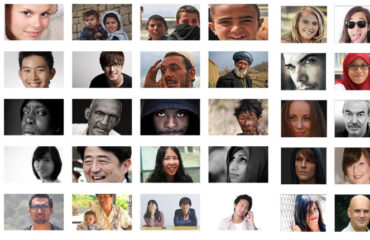Insentient bias training is the major solution for diversity, equity, and inclusion. US companies spend around $8 billion every year for leaders and employees to reveal insentient biases and unfair behaviors to foster a comprehensively inclusive environment. But, such initiatives don’t have long-term results.
The good news is that you have better options. Companies have several options to develop dedicated leaders to take action and ensure underrepresented employees can flourish rather than merely survive. However, companies sometimes treat leadership coaching, diversity, equity, and inclusion training as individual initiatives. Companies cannot separate them and only implement the latter when they have a high budget. A company’s attitude towards developing an inclusive culture and making employees feel safe is a major part of leadership. Simply put, a lack of inclusion and diversity is a sign of leadership issues.
Now that you have tried to nurture diversity, equity, and inclusion in your workspace, what really works? The answer is investing in fostering a positive coaching culture.

Affecting Behaviors in the Long Run
The meta-analysis of around 500 implicit bias assessments in 2017 revealed that attempts to rectify the underlying biases resulted in long-term behavioral changes. Leaders approached for bias training sessions understand that biases exist and often don’t have the tool for remediation. The absence of steps can lead to the status quo.
Coaching is a powerful and efficient approach when teamed with other DE&I initiatives that help managers, executives, and leaders arrive at their solutions rather than being dictated to the steps they should take. According to ICF, coaching is partnering with a coach in a creative practice that motivates the client to enhance their personal and professional expertise and potential. With coaching, the coachee sets their plan and expected results, and the professional coach ensures accountability for their steps. At uExcelerate, you can get experienced coaches who opt for modern training measures to develop resilience, offer healthy coping mechanisms, motivate effective problem-solving skills relevant to DE&I and change the negative/biased thinking patterns into a more positive approach. The coaches also help leaders cope with different behaviors and change their perspectives to help adopt better-coping measures and focus on their strengths. The coaches help leaders meet their individual goals around DE&I and learn to develop capacity rather than dependency.
Coaching and Developing your Employees
The special nature of coaching helps enhance underrepresented workers, who often face challenges in the workplace. Working on the skills of high-potential and low-potential employees will help them take more responsibility and manage their job positions well.
Boosting employees’ confidence by sharpening their skills and lowering their organizational stress helps them retain their employees. Often employees experience emotional tax where they need a sense of protection against bias along with handling daily work stresses. In addition to emotional tax, employees often face reliance, inclusion, and work satisfaction issues, which hurts their emotional health. This may make them disengaged or even force them to leave the company.
A company’s attitude to developing an inclusive, diverse, and safe culture is important to any work culture.
Coaching addresses and eliminates these challenges. Companies that provide a high-performing coaching culture ensure they train the employers and employees to understand the challenges and develop the best possible solution. The coaching relationship helps employees holistically address their problems. It helps them address the unaddressed issues. Hence, the managers need to choose coaching for themselves, their teams, and the enterprise as a whole.

Coaching to Build Motivation and Foster an Inclusive Work Environment
The conventional approach to diversity and inclusion training that companies invest in is to develop leaders and workers who are aware, motivated, encouraged, and happy. Pairing coaching programs with DE&I offers better results. Coaching managers and employees at all levels strengthen the frameworks needed to develop inclusive workplace culture and motivate employees to boost engagement.
Enhancing Organizational Connections
Researchers have noticed since the late 80s that communication gaps exist between the companies’ executives and the more diverse employees, who add up to the lower positions. They can also be demographic.
The workplace culture can be more inclusive by choosing a coaching program that enhances more connections between the upper management, the lower management, executives, and the rest of the workforce. It can help leaders take a path that will strengthen organizational connections.
Enhance Leadership Diversity
Though the C-suite level diversity is noticeable in the representation of the entire workforce, a lot of work should still be done. Often minority workers experience barriers when they are climbing the organizational ladder. By choosing the right formal culture, coaching programs greatly enhance the situation of underrepresented or minority workers in leadership positions.
uExcelerate offers employee development programs for everyone to help them climb the ladders of success and become a leader in the true sense.
Mindset Shift
A major challenge with DE&I is how it is perceived and presented to the employees, teams, and people. If it is presented as a “have to” or an “add-on,” it impacts different people differently.
DE&I initiatives, when supported by coaching, offer a mindset shift making the transition from an add-on to an important part of your company.
Adult learners have specialized requirements, where they are taught things till it fully converts into a new habit. Just like one step will not cover the earth, thinking once will not lead to a change in complete mindset. To make a difference, you need to walk the whole place. To make a strong mental effect, you should think over the thoughts repeatedly. Coaching is a structure that help offers support to change your thought patterns truly.
The lack of implementation of DE&I efforts may showcase a significant decline in a company’s customer base that may choose to partner with a competitor company adapting DE&I. While the positive examples of adopting DE&I through the company can bring a change in the hiring practices to retain more diverse workers, work on product innovation, and market expansion by enhancing teamwork spirit and employees potential and customer base expansion because of D&I processes.
Coaching supports the mindset shift with efficient planning and execution of individual practices.
Wrapping Up
uExcelerate’s DE&I coaching program works by coaching employers and employees with practices and lessons that learners need. Learners develop a reliable and trustworthy relationship with their coach, which offers a free flow of conversation, hesitations, and ideas. Coaches work with coachees in remarkable ways and offer actual workplace examples, case studies, and activities. This helps stimulate coachees with a deeper understanding of themselves and their team.
Using the help of external coaching resources can enhance your DE&I Program. Most of the time, the outside perspective leads to better conversations and active listening times. The coaches help boost your DE&I strategy and offer insight to meet your goals.
The uExcelerate team has the potential and expertise to deliver coaching programs to companies that align with their unique requirements and DE&I learning goals. We support individual coaching, team coaching, and enterprise coaching. We help support leaders, managers, and employees with the structure to accept a positive, coaching work culture. The teams should focus on continuous learning and development to ensure all members are aligned and foster inclusion by breaking barriers.
Discuss your requirements with us and get started now!





